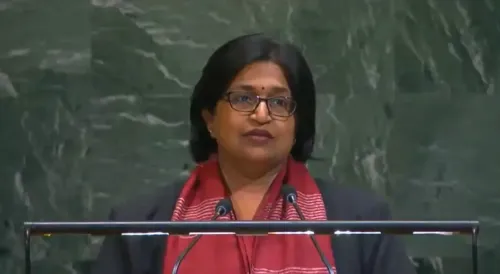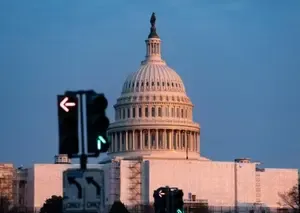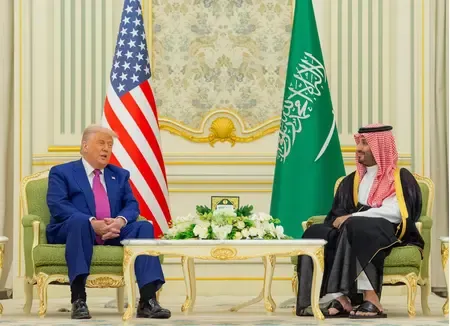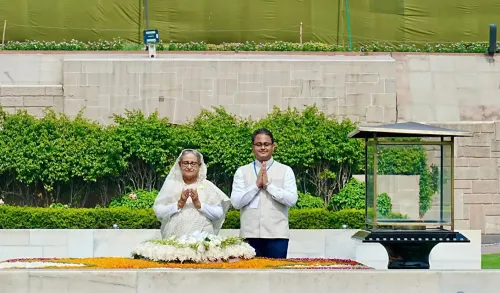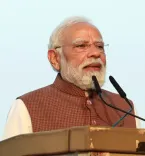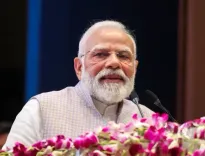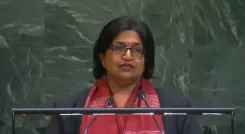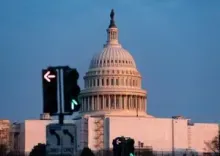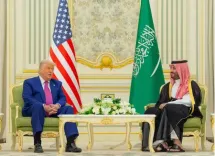Did Trump Finalize F-35 Sales to Saudi Arabia Alongside Nuclear Energy Agreements?
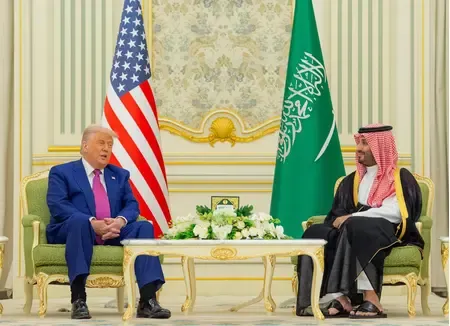
Synopsis
Key Takeaways
- Agreements on nuclear energy and defense were finalized.
- Trump approved the sale of F-35 jets to Saudi Arabia.
- Saudi investment in the US is projected to rise to $1 trillion.
- The meeting highlighted the importance of AI collaboration.
- Saudi Arabia aims to join the Abraham Accords.
Washington, Nov 19 (NationPress) US President Donald Trump welcomed Saudi Crown Prince Mohammed bin Salman to the White House, where both parties formalized agreements regarding nuclear energy, defense, critical minerals, and artificial intelligence.
According to a statement from the White House, the signed agreements included provisions for civil nuclear energy, a framework for critical minerals, and an AI Memorandum of Understanding (MoU).
Additionally, the leaders ratified a US-Saudi Strategic Defense Agreement (SDA), with Trump endorsing the sale of F-35 jets and tanks.
This visit marked the crown prince’s first appearance at the White House in seven years, celebrated with full ceremonial honors, including a military guard and a flyover by US aircraft.
Trump, in his welcoming remarks, referred to the crown prince as “an extremely respected” individual and emphasized their long-standing personal relationship.
During discussions, Prince Mohammed shared intentions to elevate Saudi investments in the United States from an anticipated $600 billion to nearly $1 trillion.
He presented this increase as a strategic commitment to US expansion, highlighting the growing need for computing power and advanced chips in Saudi Arabia.
“We believe in the future of America,” he remarked, describing the opportunities as “real” and driven by commercial interests. Trump acknowledged this, expressing that the United States “appreciates it very much.”
When asked about the 2018 murder of journalist Jamal Khashoggi, Trump reiterated his stance that the crown prince played no role in the tragedy.
Prince Mohammed characterized the killing as “painful” for Saudi Arabia, labeling it a “huge mistake,” and noted that his administration has enhanced protocols to avert a recurrence. He asserted that the kingdom has implemented necessary corrective actions.
Regarding regional diplomacy, the crown prince confirmed Saudi Arabia's interest in joining the Abraham Accords and establishing formal relations with Israel, while stressing that Riyadh seeks what it considers a “clear path toward a two-state solution” before proceeding.
The two leaders are scheduled to participate in a US-Saudi investment forum in Washington on Wednesday.

